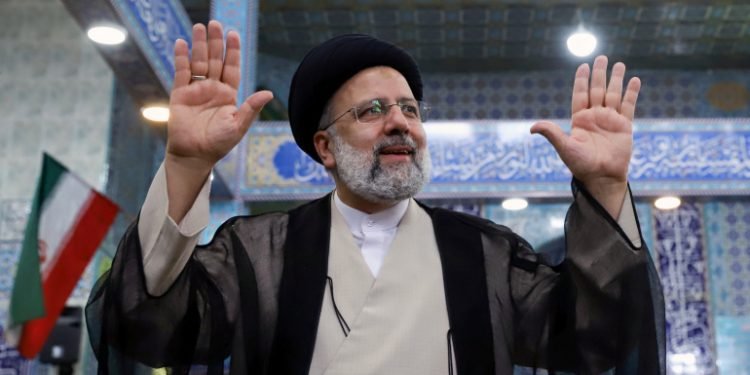Brussels (Brussels Morning) Iranian hardline ultra-conservative cleric Ebrahim Raisi was sworn in as the country’s new President before the Iranian parliament on Thursday, bringing to an end the moderate period in Iranian politics that had been presided over by his predecessor Hassan Rouhani.
Raisi has long been a target for criticism by international rights groups, which have pointed out his role in decades of suppression of civil rights in the Persian Gulf country, where he acted as a loyal servant of the theocratic regime from the very outset of his political career.
Reports connecting him to the torture and executions of thousands of political prisoners as far back as 1988, prompted Washington to put the hardline cleric on its sanctions list in 2019. Before the presidential elections, Raisi served as the head of the country’s judiciary, widely regarded as being heavily influenced by politics and an arm of the country’s ruling Guardian Council.
Raisi was believed to have been personally selected by the Supreme Leader Ayatollah Ali Khamenei to be Rouhani’s successor. The Guardian Council barred most moderate candidates from running in the elections, including allies and associates of Rouhani, ensuring that citizens were given only hardline options. This culling of candidates is believed to explain the record low turnout at this year’s election.
While Rouhani’s relatively moderate rule was also marked by brutal crackdown on public protests and free speech, this was perceived to be an extension of the political will of the country’s real authority – the Supreme Leader. The ascent to the highest civilian office of the hardline cleric, a man who has presided over the judiciary crackdown of all activists and dissidents to date, is deemed likely to ensure further erosion of civil rights in Iran.
Raisi will be tasked with resuscitating the country’s ailing economy, putting an end to water shortages and power blackouts, which will almost certainly necessitate the lifting of US sanctions against Tehran. On the other hand, Ayatollah Khamenei’s statements ahead of Raisi’s inauguration indicate that the new president will probably adopt a hardline approach to negotiations, as well.
While Rouhani managed to negotiate relief from sanctions as part of the 2015 Iran nuclear treaty, which is currently being renegotiated in Vienna, it remains to be seen what kind of concessions the new administration will be willing to make to the West, since it is thought unlikely it will place either its human rights policy or its regional missile programme on the negotiating table. Given the new administration in Washington, and the future German government likely to be defined by the Greens, with the emphasis the place on human rights issues in international diplomacy, Iran find itself forced to choose between its economy or its policy of repression. Either choice could represent a long-term danger to the ruling regime.




